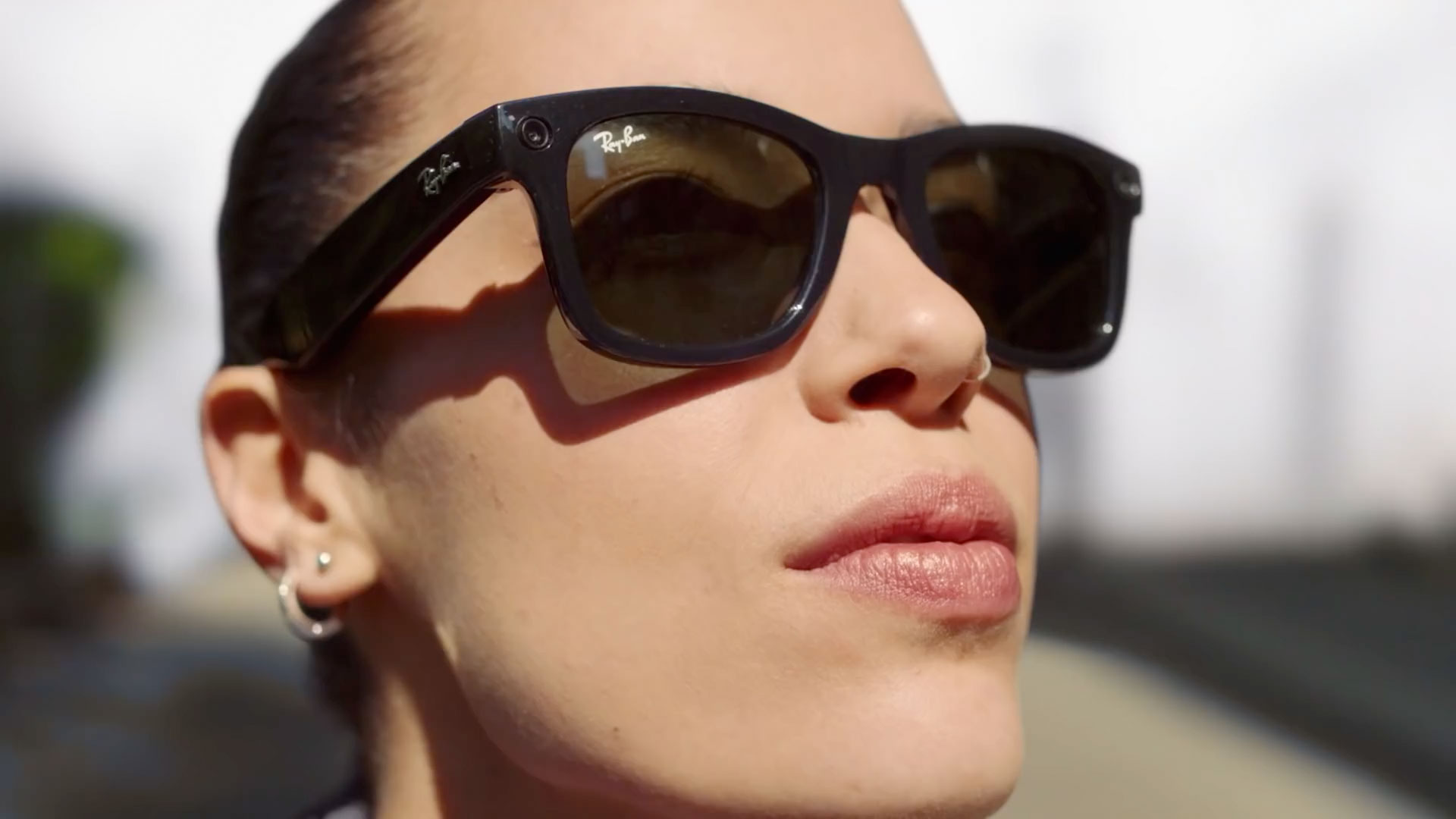Facebook's Fun Film Introduces Its Ray-Ban Stories Smart Glasses
Polarizing lenses are equipped with 2 cameras
Imagine viewing life through Facebook’s Ray-Ban Stories smart glasses. Will you see endless sunny days while using the shades to play your favorite tines and podcasts? Perhaps you’ll engage the product’s megapixel cameras to capture every sparkling hue of that spontaneous paint-balloon fight downtown.
Facebook spins such a scenario in a short film introducing the specs—though detractors warn of darker, dystopian visions lurking just out of sight.
The future’s so bright, you’ve gotta wear these $299 shades?
Some fret over such technology, fearing Facebook will strip away yet another layer of our privacy, with Ray-Ban wearers beaming images of everyone and anything hither and yon for purposes unknown. Google Glass failed to allay such concerns, among other issues, nearly a decade ago. While still in production, those specs will forever reign as eyewear for “glass-holes,” a textbook case of brand failure. Snapchat’s Spectacles fared better with public perception, but remain a niche item, to be sure.
Facebook, of course, plans to go big with Ray-Ban Stories, stressing its commitment to privacy at seemingly every turn. To wit, an LED light alerts bystanders when recording is in progress, “and that’s more than what smart phones do,” notes Facebook chief Mark Zuckerberg in this 10-minute presentation:
What’s more, “When your glasses are off, they’re completely off—the mic is off, you can’t take photos or record videos,” Zuck says.
Phew! What could possibly go wrong?
OK, wearables in general, and Facebook in particular, present an easy target for critics. And this launch comes at an inopportune moment, with the platform absorbing hate for allegedly ignoring the negative societal impact of its products and services. The intrinsically intrusive nature of Ray-Ban Stories brings potential negatives into sharp focus.
But here’s the thing … even if these glasses fail to catch on, some similar product surely will. We’re warping toward an increasingly complex and connected future—hastened, perhaps, by the desire to experience a richer post-Covid reality (not to mention Silicon Valley’s lust for profits). We’re plugged in all the time, almost an extension of our devices, rather than the other way around. By and large, we like it like that, believing the rewards of convenience, fun and communication far outweigh the risks.
The :60 depicts this dynamic in idealized terms. It’s as light and bright as can be, and some may dismiss its simplistic approach and trite imagery (paintball indeed!). Still, it works as an aspirational “what-if” exercise, an invitation to explore your world in a whole new way.
“With Ray-Ban stories, you can stay focused on what you’re doing, and you don’t have to choose between being on your device and being fully present,” Zuckerberg says. “Imagine seeing holograms, turn-by-turn directions, or being able to play chess on a table in front of you with your loved one 3,000 miles away right from your glasses.”
Dude’s in tune with the social flow. Zuck views smart glasses as a step worth taking, regardless of bumps in the road—a milestone, perhaps, in our cultural evolution, akin to Apple’s iPhone launch 14 years ago. (Yeah, OK, we’ll see about that.)
We can close our eyes and dream of simpler times. But ultimately, there’s no looking back.



 Events
Events
